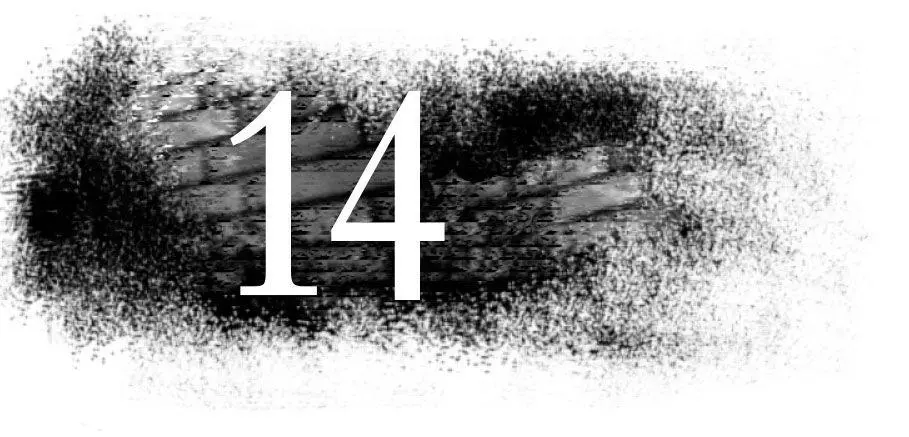Knox’s jaw muscles knot. “I’ll pass.”
“Pussies soft as lambs. I can arrange it. Not the window girls. Much classier. Any age, any skin color.”
Knox struggles to relax his fist, which has tightened beneath the table. He blames himself for starting the conversation. For an instant he visualizes the other man’s bulbous nose pushed through his face and into his brain, his blue eyes lifeless.
Gerhardt Kreiger can procure anything . Knox knows this; he has purchased a variety of goods from him for nearly three years, one of his longest business relationships. But this is the first time Kreiger’s offered to pimp. Knox wonders if the wholesale business is that bad.
He’d wanted to start with pleasantries but is reminded how unpleasant Kreiger can be. Instead, he jumps in, hoping to network his way into the rug business.
“We need another gross of the Delftware dinner plates and salad plates, a gross of the beer steins and a half gross of the glass yards.”
“So send me an e-mail.” Kreiger cleans the wire rims with a checkered cloth napkin, blowing on each lens. He orders a Grolsch as Knox’s Heineken is delivered. “Not that I do not enjoy you buying me a beer. And the company, of course.”
Knox keeps his voice low despite there being no one within earshot. “Rugs,” Knox says.
Kreiger studies him pensively. “Turkey. North Africa. I realize the quality Afghans have dried up temporarily, but that’s your country’s fault, not mine.”
“Too many middlemen,” Knox says. “Prices are too high. Government’s too unstable. I need quantity and quality and not six Turks between me and the manufacturer.”
Kreiger fights off a devilish grin and shakes his head. He waits for the beer to be delivered. They clink steins. He makes sure the waitress is another five strides gone. “I didn’t know you read Dutch.”
“I have no idea what you’re talking about.”
“No, I am sure of it,” Kreiger says. He savors the beer and licks his mustache. He eyeballs Knox again, a mixture of cunning and respect. “You impress me, Knox. Such ambition.”
Knox says nothing.
“I do not picture you as the type to condone the manufacturing methods .”
“Gerhardt, these are trying times. The euro zone is in recession, so it’s a buyer’s market. At home, we’re stuck with customers wanting everything for less, if they want anything at all. If I buy from the Mideast, the margins will kill me, and between the shrinkage and the bribes to longshoremen, there go the profits. By the time I see my container—hopefully sometime this millennium—I’m looking at pennies on the dollar. To hell with that. I need that ratio reversed. Your city’s got one of the biggest shipping ports in north Europe. If there are rugs being manufactured here—hand-tied, natural dyes, high-quality wool—and I buy from a single agent, as in you, I can trust the container to arrive with its original count and contents on time. Clean and simple, just as I like it.”
“You do make a girl blush,” Kreiger said. “But who says the article was accurate? You know journalism these days.”
“Hypothetically speaking,” Knox says, “there must be others like me . . . a market for high-end knockoffs.”
Kreiger wipes foam off his mustache and grins wryly. “There’s always the UK. And you’d be surprised: the Russians will pay these prices. So much goddamned money there now. All of them wanting to be as Western as money can buy. St. Petersburg is a gold mine for these rugs. Anything north of Prague is a viable market at these prices.”
Knox hears price mentioned and thinks only of the girls. Kreiger reads him.
“Who says I would know anything about such a despicable place? I happen to like children. I have seven grandchildren. Did you know that? Four boys, one named for me.”
“Congratulations.” Knox works on the beer, but can’t keep up with Kreiger, who signals for another. “Maybe you could ask around.”
“For you? Anything.” He leans closer. “Hypothetically speaking, what count and cuts are you interested in?”
Knox gives him an overall number and the breakdown in sizes. Kreiger rolls his eyes, exaggerated by the spectacles. He scratches out some numbers onto a napkin. “This number would occupy three-quarters of a full-sized container. You can’t be serious.”
“I take delivery once. If I have to wait a few months before you ship, I can live with that. My experience says that manufacturers like this don’t stay in business all that long. I won’t get the chance for a repeat buy, much less establish regular shipments.”
“No. I would agree.”
“So I’m front-loading inventory. Stocking up.”
“You are looking at”—he refers back to the napkin—“a hundred thousand euros minimum. Cash, you understand?”
“Fifty. And you handle the port costs on this end.”
“You have become a comedian. The act needs work, I’m afraid. Ninety-five.”
“Sixty.”
“Eighty, and it is final. Also, I must check with the supplier first.”
“Seventy-five is my limit.”
“I will look into it.”
Knox writes a phone number on a napkin. He’ll have to remember to swap the SIMs a couple times a day and check for messages. He pushes the napkin back to Kreiger.
“I need to see the work. All three sizes, various dye lots,” Knox says. “You decide the where and when. I am at such an advantage knowing someone like you, only one middleman, not three.”
“Someone like me.” Kreiger hoists his beer stein, and the dull clank that sounds off Knox’s half-empty stein sounds to Knox like a judge’s gavel lowering.

A damp settles over the city, an impenetrable gray mist thick enough to taste. It hovers and swirls but does not dissipate. Grace has waited until evening to catch those heading home from work. By early evening, the market on Ten Katestraat is thick with bodies moving from one tented stall to another. Fruit and vegetable vendors compete by turning their displays into colorful art worthy of still-life photography. Merchants offer athletic clothing, bedding linen, office supplies and kitchenware.
She joins the crush and sets her sights downstream. She is carried in a clot. Manages to reach the edge of the flow and grabs a tent’s corner pole to check her progress. She takes hold, appreciating the diversity of faces. Indian, North African, French, Italian. Yet she’s the only Chinese. She hears Russian, Yiddish, Dutch, English.
“Yes?” The vendor addresses Grace as he punches a calculator. A young woman stands before a variety of vegetables collected onto the portable table.
Grace pulls out the newspaper article and photograph—the young girl’s sullen face appealing to the camera. She shows it to the vendor, whose eyes stick to it before rolling up to find Grace’s.
“She lives around here,” Grace says with authority. “I am looking for her.”
His eyes are angry and deeply suspicious. “Who is next?” he says, calling out to his patrons.
Grace moves back into the thick of the crowd and bullies her way forward, wondering what to make of the look the man gave her. She’s almost certain he knew the newspaper article or recognized the girl from the photograph. This tells her the neighborhood knows about the girl’s story. They expect people like Grace to nose around. They assume her to be police. She must overcome their initial distrust.
She spins fully around once, as if looking back at a missed buying opportunity. Of the hundreds of heads and faces shining in the glare of bare bulbs, one stands out. Grace does not linger on it, but sweeps her gaze past it and alights on a tent across the crowded street. A tall woman of Mediterranean or Middle Eastern heritage, a light-colored scarf worn over her head. Her attention was fixed on Grace—that she turned away convinces Grace—thrills her, if truth be told. She’s been followed. Identifying a tail has nothing to do with luck; it is a skill set taught, an instinct developed and developed until second nature. Grace moves on without so much as a crease to her brow or break to her step, leaving no trace of her detection.
Читать дальше













